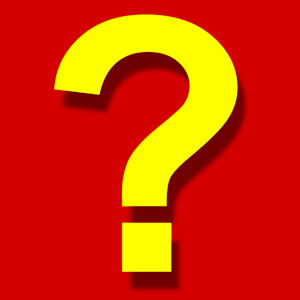Not just Marxist philosophy I want to read and understand other schools of thought too
My personal favorite intro is Georges Politzer’s Elementary Principles of Philosophy. Politzer goes over the history of philosophy and how different schools of thought changed alongside modes of production, until Dialectical and Historical Materialism.
By beginner, you mean secondary sources that introduce you to the discipline in general?
No, I only want primary sources
How about starting with a guide, and make notes on primary sources for later?
Anything you get here will be someone’s take on the path for sociology. Just like the author of a sociology review guide/book.
Otherwise, sociology concepts tend to be non trivial to navigate, because beginners miss the historical context in which concepts are proposed. And where primary sources are coming from.
This take “primary sources only” hamper your potential understanding, in my opinion. Building this knowledge individually feels pointless, idealistic, even. Because it lacks dialogue with other people that are living and applying those concepts, and risks giving you just a perspective based only on your own limited experience, instead of an actual grasp on the gradient of sociological ideas. Which is apparently what you are looking for.
ok what guide do you recomend
Maybe Michael Parenti’s Democracy for the Few. Maybe this is more ‘political science’ than political philosophy (I’ve not read it in depth).
The other thing to note is that the distinction between primary and secondary sources in political philosophy is a little different to that in e.g. history. Philosophy often develops through a critique and synthesis of other authors. Which means that a primary source of one author may also be a secondary source for another.
Consider Marx, Poverty of Philosophy, for example. It is a primary source for Marx and a secondary source for Proudhon.
There are still guide-type textbooks that are more like secondary sources, with everything simplified and predigested. I’m not a huge fan of these.
Then there are works by people like Alasdair MacIntyre and Bernard Williams. These are good at introducing philosophy because they’re largely aimed at undergraduates. But they also criticise others and tell you what they think; i.e. they present their own philosophy at the same time. In e.g. Williams’ Ethics and the Limits of Philosophy or his book on Descartes, you can see how he arrives at his own philosophy. These kinds of books are far more interesting, in my view.
Personally, I’d read something by Williams or MacIntyre and see how you get on. Have a look at their bibliographies and see if anything looks interesting. It doesn’t have to be these two. Many modern academic philosophers will have similar books, chapters, articles. There are these kinds of compilations, too: https://onlinelibrary.wiley.com/doi/book/10.1002/9781405177245 (I assume you’ll be sailing the high seas as these books are expensive).
Or read some of these: https://plato.stanford.edu/search/searcher.py?query=Political+philosophy
As for primary works, JS Mill is easier to read than Bentham. Hayek is quite clear. Aristotle isn’t as difficult as you might think (depending on the translation). Machiavelli’s Prince is quite short. Just search for the major political philosophers, read whatever comes up, and see how you get on. Or read something that I’ve linked and keep a note of people whose ideas sound interesting, and search for them. It will be a challenge but it becomes manageable if you stick with it.
Some very politically “neutral” are “the book of” series. https://www.goodreads.com/book/show/24878419-the-sociology-book https://www.goodreads.com/book/show/8493026-the-philosophy-book
You can find them on Anna’s archive.
I honestly don’t know how to describe them relative to how lemmygrad’s political line, but I like that there’s a time line, and it felt complete enough for my young self.
I suppose after getting a grasp, some vocabulary, and context, it is probably easier to follow prolewiki’s: https://en.prolewiki.org/index.php?title=Portal%3AMarxism
I’d also follow the collective study groups here, in your position. :)
Let me know how it goes! Hasta la victoria, siempre!
That’s a tracking link we use to see if people click on the new “pills” on the homepage! I recommend using https://en.prolewiki.org/wiki/Portal:Marxism instead, that way it doesn’t get counted in our stats lol
Sorted.
I’d suggest using industry standard (utm tracking codes) for that. I thought v=10 was a versoning parameter and didn’t remove it. :D
I’m having too much fun with these tracking links. I only learned recently that you could put whatever as the variable, it doesn’t need to actually “exist” like it does in programming languages. This time it was v but at other times it can be sdkfjdsf.
Although I am of the opinion of the other commentor, there are two books on my mind: Utopia by Thomas More (an easy and not too theoretical read) and Political Philosophy of Bakunin (a selection of some of his writings).
More obvious ones are Rousseau, Hobbes and Locke.
deleted by creator
Good advice. Not seen that book before. I might check it out.
Lenin, Stalin, and Mao are very accessible in my opinion. They write in clear and plain language, and their writings were intended to be practical and accessible. I would particularly recommend The State and Revolution as it tackles a lot of the questions being debated today regarding the nature of the state and reformism versus revolutionary action.
Unfortunately, most offered sources are implicitly biased towards Western/traditional intellectual philosophy as we live in a culture that has normalized and centered Western (male) philosophers
Oddly enough I think Action Comics’s Action Philosophers is a really breezy introduction to an international body of philosophers that you can use to further your education. Still Western biased, but less so
I.e. Lao Tzu, Confucius, Simone du Beauvoir, Frantz Fanon, et al
De Beauvoir? Not Western biased? Her writings are very orientalistic (though besides that, she’s alright).
Ah, I meant the selection of philosophers was Western biased. But yes, to your point, most Western philosophers also have Western biases




